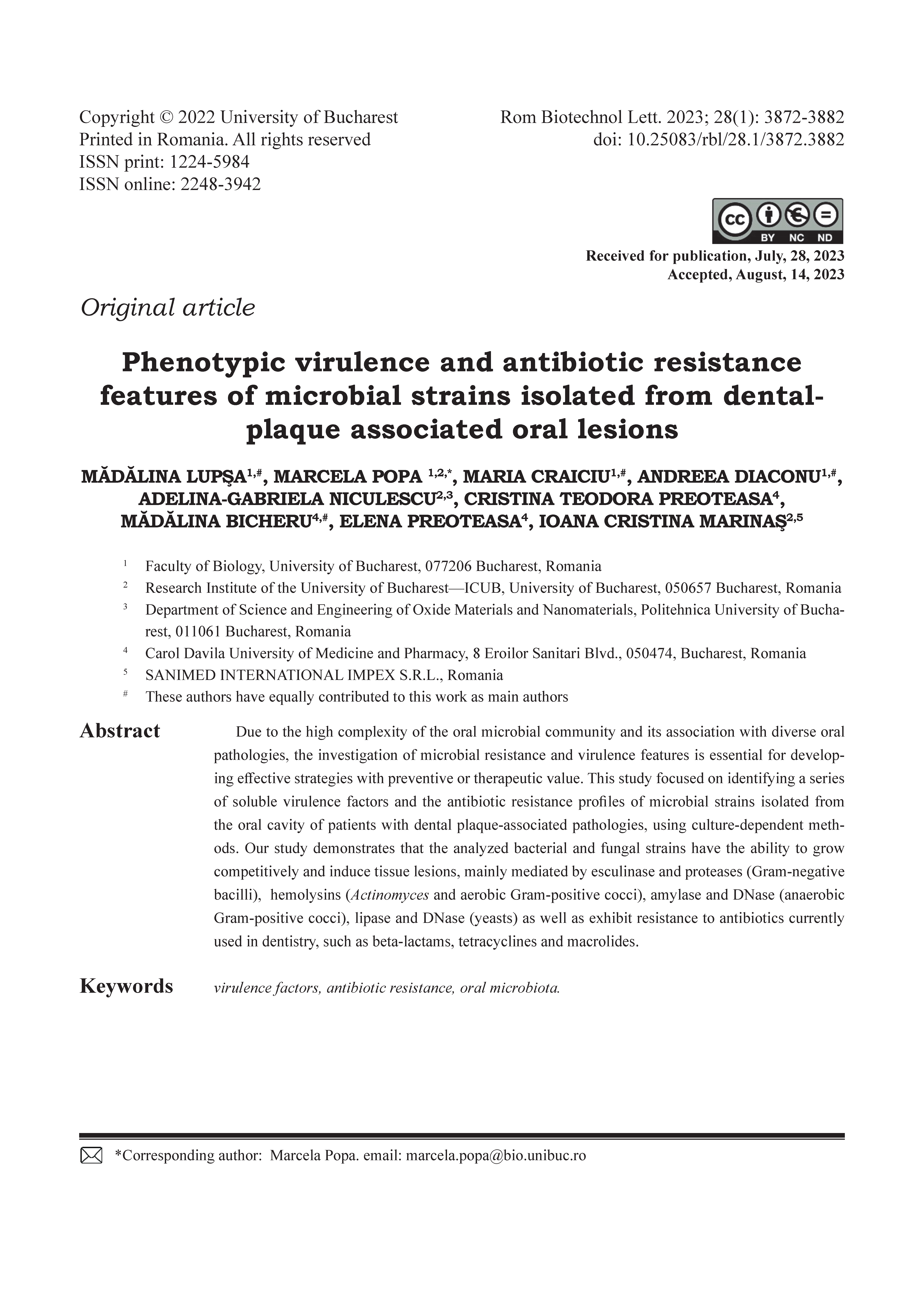Phenotypic virulence and antibiotic resistance features of microbial strains isolated from dental-plaque associated oral lesions
DOI:
https://doi.org/10.25083/rbl/28.1/3872.3882Keywords:
virulence factors, antibiotic resistance, oral microbiotaAbstract
Due to the high complexity of the oral microbial community and its association with diverse oral pathologies, the investigation of microbial resistance and virulence features is essential for developing effective strategies with preventive or therapeutic value. This study focused on identifying a series of soluble virulence factors and the antibiotic resistance profiles of microbial strains isolated from the oral cavity of patients with dental plaque-associated pathologies, using culture-dependent methods. Our study demonstrates that the analyzed bacterial and fungal strains have the ability to grow competitively and induce tissue lesions, mainly mediated by esculinase and proteases (Gram‑negative bacilli), hemolysins (Actinomyces and aerobic Gram-positive cocci), amylase and DNase (anaerobic Gram‑positive cocci), lipase and DNase (yeasts) as well as exhibit resistance to antibiotics currently used in dentistry, such as beta-lactams, tetracyclines and macrolides.




